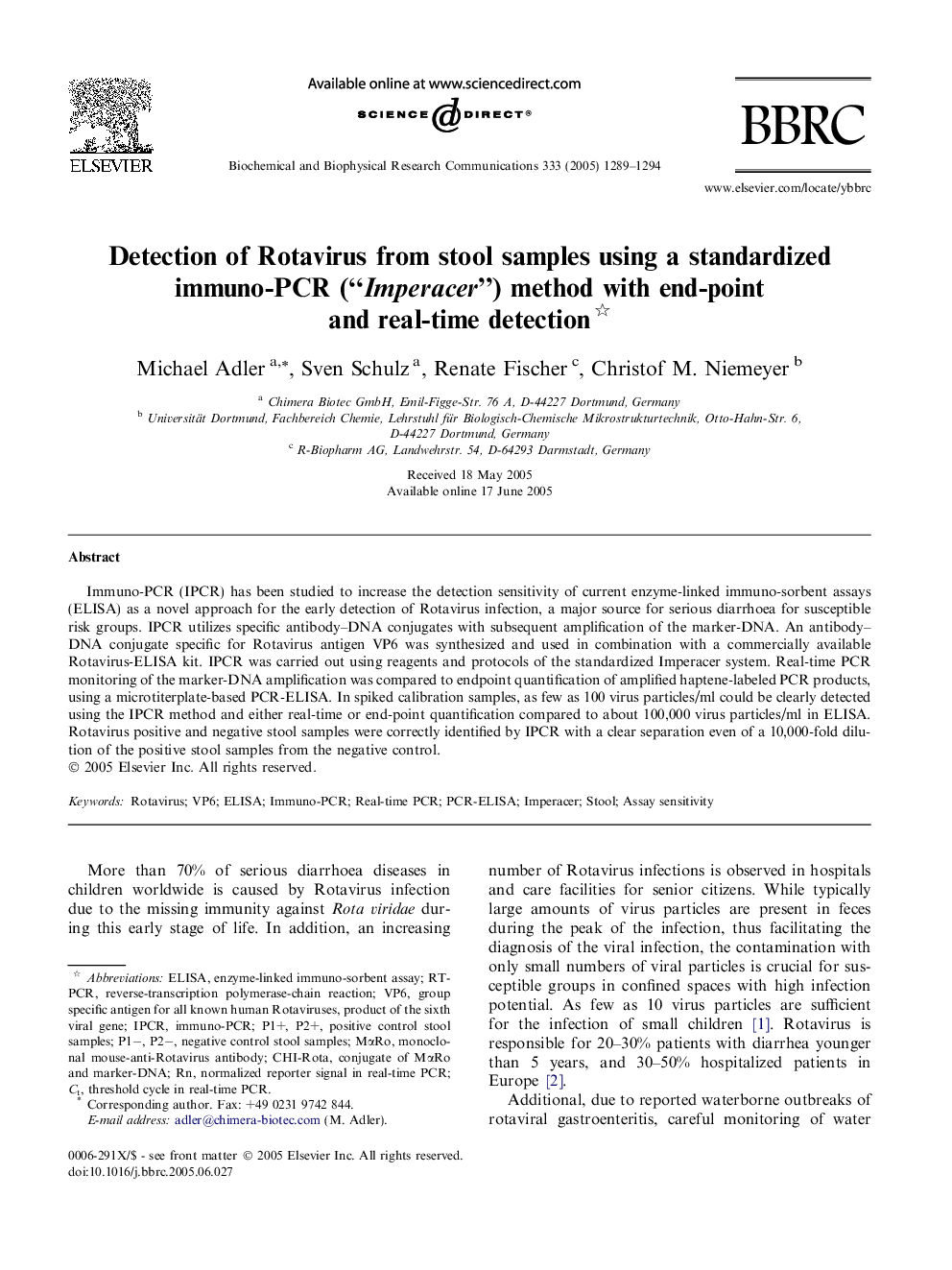| Article ID | Journal | Published Year | Pages | File Type |
|---|---|---|---|---|
| 10768592 | Biochemical and Biophysical Research Communications | 2005 | 6 Pages |
Abstract
Immuno-PCR (IPCR) has been studied to increase the detection sensitivity of current enzyme-linked immuno-sorbent assays (ELISA) as a novel approach for the early detection of Rotavirus infection, a major source for serious diarrhoea for susceptible risk groups. IPCR utilizes specific antibody-DNA conjugates with subsequent amplification of the marker-DNA. An antibody-DNA conjugate specific for Rotavirus antigen VP6 was synthesized and used in combination with a commercially available Rotavirus-ELISA kit. IPCR was carried out using reagents and protocols of the standardized Imperacer system. Real-time PCR monitoring of the marker-DNA amplification was compared to endpoint quantification of amplified haptene-labeled PCR products, using a microtiterplate-based PCR-ELISA. In spiked calibration samples, as few as 100 virus particles/ml could be clearly detected using the IPCR method and either real-time or end-point quantification compared to about 100,000 virus particles/ml in ELISA. Rotavirus positive and negative stool samples were correctly identified by IPCR with a clear separation even of a 10,000-fold dilution of the positive stool samples from the negative control.
Related Topics
Life Sciences
Biochemistry, Genetics and Molecular Biology
Biochemistry
Authors
Michael Adler, Sven Schulz, Renate Fischer, Christof M. Niemeyer,
